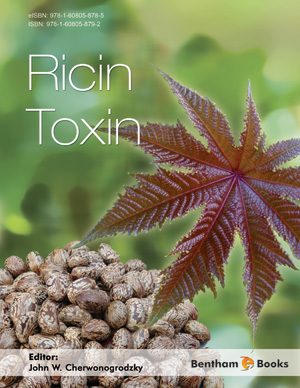Abstract
Ricin is a potent phytotoxin that presents a significant public health concern due to its potential use as a bioterrorism agent. Exposure to ricin results in local tissue necrosis and general organ failure leading to death within several days. Currently, there is no U.S. FDA-approved drug or vaccine against ricin poisoning. Because vaccination offers a practical prophylactic strategy to protect selected populations at risk of ricin exposure, there has been a great deal of interest in developing a safe and effective vaccine to protect humans, in particular soldiers and first responders. Generation of non-toxic derivatives of ricin or ricin A chain (RTA) for use as vaccines has been initially attempted by several groups using formalin treatment, chemical deglycosylation, or mutagenesis by substitution or insertion. Most of these efforts resulted in unstable protein products that aggregated in solution, had residual toxicity, or expressed poorly in recombinant form. At present, two leading recombinant RTA vaccine candidates, RiVax (University of Texas) and RVEc (USAMRIID), are in advanced development in clinical trials. This chapter reviews the efforts, challenges, and progress toward the development of ricin vaccines.
Keywords: Ricin, recombinant ricin vaccine, RVEc, RiVax, ricin toxoid, RTA, dgRTA.






















